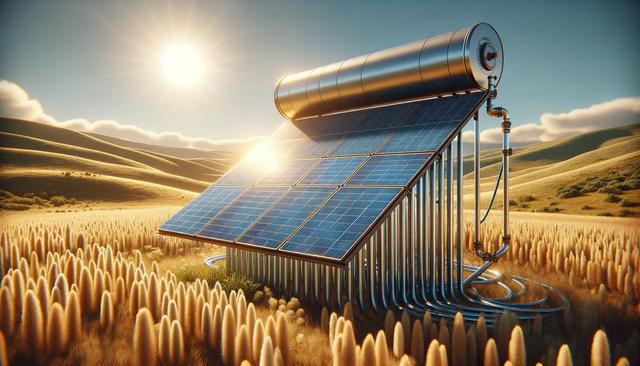Understanding the Basics of Solar Water Heating
Solar water heaters are systems that utilize the energy from the sun to heat water for domestic or industrial use. Unlike traditional water heaters that rely on gas or electricity, these systems operate by capturing solar radiation through collectors, which are typically installed on rooftops. The collected heat is then transferred to water stored in a tank, making it readily available for showers, dishwashing, and other household functions. The technology is rooted in simplicity, yet offers significant energy savings and environmental benefits.
There are two main types of solar water heating systems: passive and active. Passive systems rely on natural convection to circulate water, while active systems use pumps to move fluid through the solar collectors and into the storage tank. Both systems are effective, but the choice between them depends on factors such as budget, climate, and water usage patterns.
Components and How They Work Together
A typical solar water heating system includes several critical components that work in unison:
- Solar Collectors: These are usually flat-plate or evacuated tube collectors that absorb sunlight and convert it into heat.
- Heat Transfer Fluid: In some systems, a special fluid is used to transfer heat from the collectors to the water in the storage tank.
- Storage Tank: Insulated tanks store the heated water for later use, maintaining temperature for extended periods.
- Pumps and Controllers: Active systems require pumps and electronic controllers to regulate the flow of heat and ensure efficiency.
Each component plays a vital role in ensuring the system runs smoothly and delivers hot water reliably. Proper installation and regular maintenance also contribute to the system’s long-term performance.
Energy Efficiency and Environmental Benefits
One of the most compelling reasons for using solar water heaters is their energy efficiency. These systems can reduce water heating costs significantly, especially in regions that receive ample sunlight. In addition to financial savings, solar heaters contribute to reducing carbon emissions and dependence on fossil fuels. Here are some of the environmental advantages:
- Lower greenhouse gas emissions compared to conventional heating methods
- Reduced air and water pollution
- Decreased reliance on nonrenewable energy sources
By integrating solar water heaters into daily life, users support a more sustainable energy model while enjoying consistent access to hot water.
Choosing the Right Solar Water Heating System
Selecting a solar heater involves evaluating your household’s hot water needs, local climate, and available space for installation. Key considerations include:
- System size: Larger households may require more collector area or multiple storage tanks.
- Climate compatibility: Some systems are better suited for freezing temperatures, while others excel in warm regions.
- Budget: Initial costs can vary, but long-term energy savings often justify the investment.
Consulting with a qualified installer can help determine the most appropriate system for your specific situation. Many regions also offer incentives or rebates to offset the upfront costs of solar water heating systems, making them a more accessible option for many homeowners.
Maintenance and Longevity
Solar water heating systems are generally low-maintenance, but periodic checks and servicing are essential to ensure optimal performance. Basic maintenance tasks include:
- Inspecting collectors for dirt, debris, or damage
- Checking fluid levels and pressure in active systems
- Flushing the system to prevent mineral buildup
- Monitoring system controls and sensors
With proper care, solar heaters can have a lifespan of 15-20 years or more. Regular maintenance not only extends the life of the system but also maintains its efficiency, ensuring that users continue to benefit from solar energy for years to come.
Conclusion: A Smart and Sustainable Choice
For those seeking to lower energy bills and reduce their environmental impact, solar water heaters present a practical and eco-friendly solution. They offer dependable hot water, long-term savings, and contribute to a cleaner planet. While the initial investment may be higher than conventional systems, the long-term advantages make solar heating an appealing option for both residential and commercial use. Embracing solar technology is a forward-thinking step toward sustainable living and energy independence.




Leave a Reply